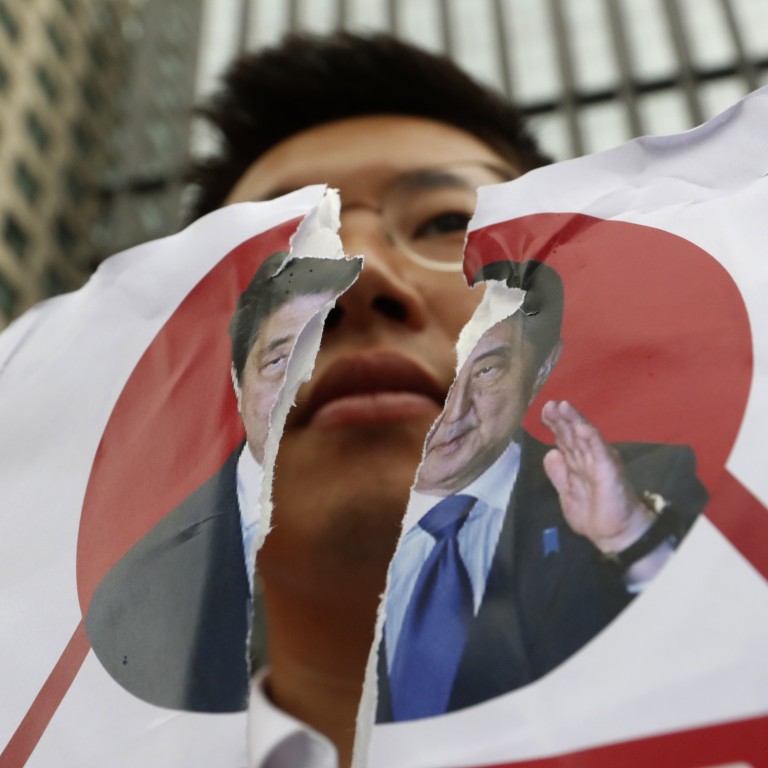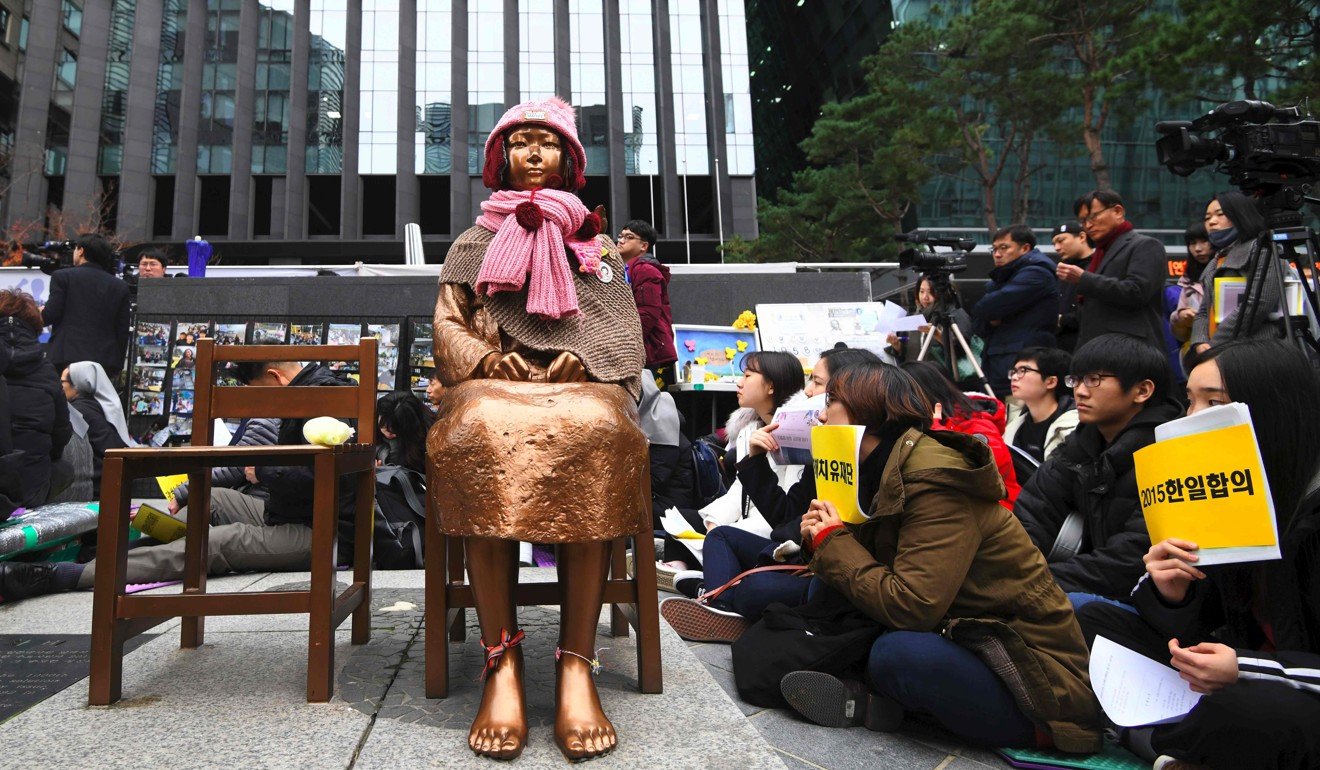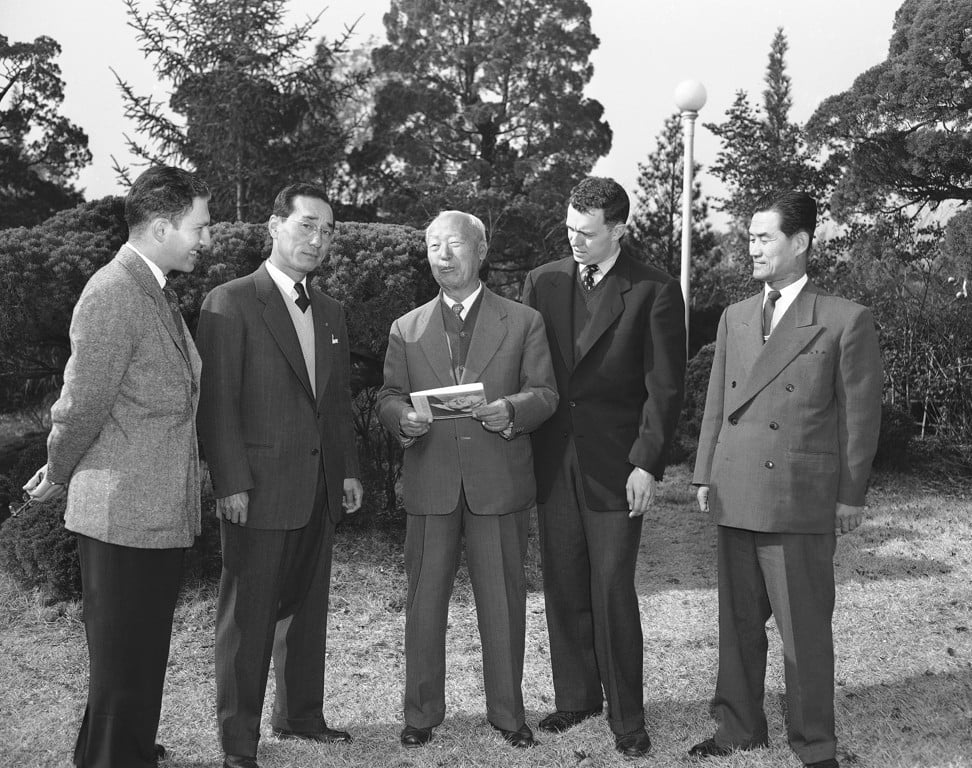
South Korea’s left and Japan’s right have crushed alternative viewpoints, setting up a trade dispute that may not be resolved
- South Korea’s left wing has long demanded a more aggressive stance on Japan’s imperial actions and stifled any dissent, while Japan’s right has also enforced its own position. With both views now mainstream, slim hopes of mediation remain
Both Seoul and Tokyo’s actions are considered overdue, democratic expressions by South Korea’s left and Japan’s right-wing parties.
Since the Park Chung-hee regime signed the 1965 treaty with Tokyo, normalising relations and ostensibly resolving colonial-era claims, left-wing activists have characterised it as the work of pro-Japanese collaborators contravening the Korean people’s wishes. Anti-Japanese populism entered mainstream public discourse during Korea’s democratic transition in the 1990s. The narrative gained traction as left-leaning Korean administrations became less willing to enforce bilateral treaties and international agreements regarding Japan.

As Korea’s left-wing undermined post-1965 treaty constraints, Japan’s far right campaigned to break Tokyo’s policy of restraint against formerly occupied Asian countries; the court decision and Moon’s refusal to arbitrate fractured Japan’s consensus favouring moderation.
Far-right politicians and media have long advocated that Japan retaliate forcefully. Their views have now reached the mainstream. The centre-left Asahi newspaper has criticised the Abe administration for violating free trade norms but joined other mainstream media in panning the Moon administration’s handling of the wartime labour issue. No mainstream Japanese media defended Moon, and the Keidanren (Japan Business Federation) has not protested the new restrictions. In late July, 71 per cent of the Japanese public supported stricter export controls.
What’s driving Japan’s escalating feud with South Korea?
For both Korea’s left and Japan’s right, these government actions are overdue expressions of popular will. However, a truly healthy liberal democracy would combine freedom of expression with open, informed, balanced public discourse. As Seoul defends comfort women statues and other anti-Japanese expressions, it censors critics who question victims’ narratives. For instance, after a Sunchon National University professor told his class that some Koreans probably volunteered as comfort women, the university terminated his employment and a court sentenced him to six months’ imprisonment.
This reflects South Korea’s post-1948 authoritarian legacy. Since 1948, when the pro-Japan colonial regime was replaced by Syngman Rhee’s anti-Japan, anti-communist government, ruling parties in South Korea have systematically propagated misinformation against enemy states and punished contrarian views. Rhee and his right-wing successors dramatised the crimes of North Korea, criminalised speech favourable to the North and portrayed the Japanese colonial regime as brutal war criminals.

The Korean left has amplified the anti-Japanese narrative. They claim the Japanese military abducted and sexually enslaved 200,000 Korean women and girls; left-wing governments have censored and successfully sought fines and/or imprisonment for academics who argue otherwise.
Seoul’s censorship follows an unfortunate trend in Western democracies, where protections and reparations for historically victimised groups have morphed into prohibitions against any speech considered hostile to their victim status. This government and societal management of discourse forbids “hate speech”, undermining classical liberal rights and informed, public deliberation. In Korea, it enables an ideologically driven anti-Japanese narrative to go unchallenged.
Anti-Japanese sentiment in South Korea brews as ‘trade war’ escalates
If Koreans were more aware of, even if not fully persuaded by, scholarship arguing that comfort women and labourers were generally neither abducted by government officials nor treated as badly as activists claim, they may be less inclined to renege on past treaties and more willing to pursue arbitration.
Discourse has been unbalanced for so long that Japan’s export controls shocked Korea’s political class, leading them to turn to Washington, not Tokyo, for a solution. Seoul and Tokyo should not rely on outside parties, but directly negotiate. The two parties may negotiate a formal supplement to the 1965 treaty, itemising outstanding issues. Despite Tokyo’s position on the 1965 treaty, it has compromised before with the 1994 Asian Women’s Fund and the 2015 comfort women accord. An agreement between the conservative nationalist Abe and left-leaning nationalist Moon would bode well for the settlement’s durability.
But this remains improbable, and any agreement vulnerable to domestic backtracking, unless the Korean state and media stop censoring discourse about these issues and Japan avoids ideological and nationalist suppression of debate.
Korea and Japan are the only democratic countries in Northeast Asia and have become essential economic partners and military allies facing illiberal neighbours. Both states can learn from their illiberal pasts, and actively support human rights, free speech and academic freedom in all of East Asia.
Joseph Yi is an associate professor of political science at Hanyang University. Joe Phillips is an associate professor in the Justice & Civil Leadership Programme, Underwood International College, Yonsei University, Seoul, Korea. Wondong Lee ([email protected]), a PhD student in political science at the University of California, Irvine and affiliated with the UCI Centre for Critical Korean Studies, also contributed to this article


